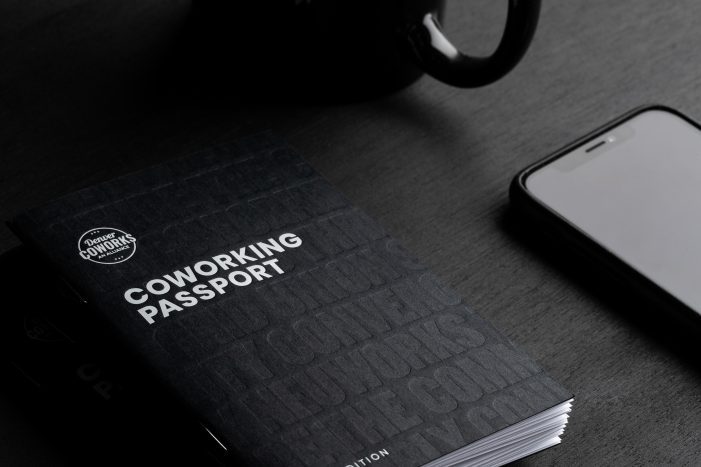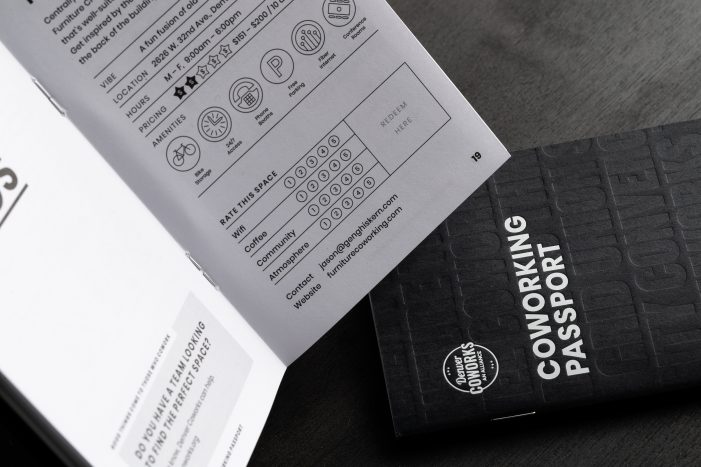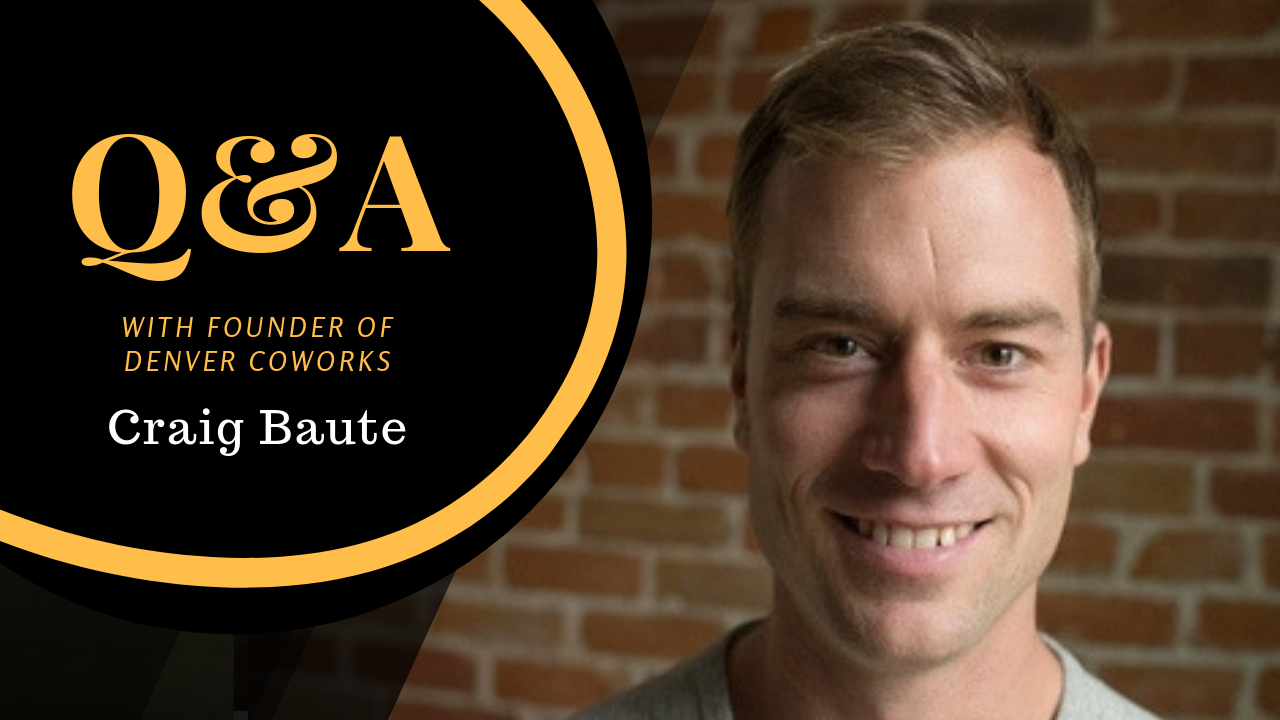- Coworking alliances can help raise awareness of the industry and they serve to direct people to the best space for them.
- Denver Coworks is a coworking alliance in Denver that recently launched its Coworking Passport.
- Allwork.Space spoke with Craig Baute, founder of Denver Coworks about how the passport can help operators showcase their culture and vibe of the space.
Coworking alliances reflect the core values of coworking (community, openness, collaboration, accessibility, sustainability) and have been around since the early days of the coworking movement.
One of the benefits of alliances is that member spaces can do group marketing campaigns to raise the awareness of coworking, in general, in a region. It’s not unusual for alliances to do group advertising, group marketing campaigns and group PR and outreach.
Alliances also serve to direct people to the best space for them. Every coworking space is different and not every space is a good fit for every potential member. Since the early days of coworking, alliances have run programs that encourage potential members to visit a number of other spaces before choosing one that suits them.
Denver Coworks, a coworking alliance in Denver, Colorado, recently raised the bar on this strategy with its Coworking Passport. An introduction to 17 local workspaces, the Passport is an elegantly designed keepsake with an off-the-charts wow factor.
Once people visit at least five spaces listed in the Passport, they get a $50 discount at their favorite one. The idea behind the Passport is to go beyond space amenities and talk about the culture, the vibe and the key things space operators want potential members to know about their space.
Allwork.Space spoke with Craig Baute, founder of Denver Coworks and local coworking space Creative Density. We talked about the inspiration for the Passport, the larger vision for coworking alliances, and how space operators can help bring the Passport to their town.
Allwork.Space: I saw the Denver Coworks Passport for the first time at GCUC in April and was absolutely blown away. It is gorgeous. What was the inspiration for the Passport?
Craig Baute: With Denver Coworks, once a year we’re trying to do bigger experiments in the coworking industry so we can promote and help build the coworking movement. We do things that get people’s attention and support all the spaces equally.
For the Passport, we wanted to provide a physical booklet. Spaces provide free day passes, but we wanted to give them a new avenue to reach people. Furniture, one of the member spaces, is a design and print shop. They had the tools and resources to create the Passport for us.
We wanted to create something that people would be proud to hold and carry around—we wanted the Passport to be a conversation starter and something people could share with friends.

Allwork.Space: Will you tell me more about Denver Coworks? Did the Passport project motivate people to get involved with the alliance?
Denver Coworks has been around since 2012. The Passport did motivate a lot of new people to join, which has been a nice side benefit. Because there’s a physical element, it makes people jealous. There’s a premium aspect with something tangible. Spaces that weren’t coming to meetings, and are not part of the community, now they’re not part of the book.
I had someone email me thinking they were part of Denver Coworks and wondering why they weren’t in the book. But, they hadn’t been to a meeting in two years. Making it to 50 percent of the meetings is a requirement of Denver Coworks. They just want to be part of the book, but this is something for people who contribute to the community.
Allwork.Space: Right, coworking alliances are communities of people with a shared purpose. What’s your vision for Denver Coworks?
A lot of people view an alliance as a listing service, and they want to join for that. By creating the Passport, it shows people what their dues are going to. It’s something physical and proof-of-concept that we’re doing more than just chit-chatting.
Some people who come in are tired of the hippie-dippie, let’s talk and be collaborative, stuff. They want to know what the results are. This speaks to the people who want to see results.
The larger vision for Denver Coworks is to promote the whole coworking movement and help people find the right space. It also exists to help us run our businesses better. Most of the spaces are small businesses.
We’re just here to support each other. We have a very active Slack group; we help each other; we know when spaces have an office available; we let other members know what people say about their space. For example, we’ll let a member know that someone left their space because they said their printer sucks.
We also let each other know when we’re expanding. If more than one space is thinking about a neighborhood, we don’t want to kill each other. That’s happened several times. It happened to me. I was looking at a space about a quarter mile from where someone else had just signed a lease. I didn’t need to move there and it helped to know they were expanding there.
Allwork.Space; The market in a new neighborhood could potentially sustain one space, but maybe not two.
Exactly. Especially if it’s two of us that have a very similar vibe.
Allwork.Space: Who do you see using the Passport?
We thought it would be freelancers and remote workers, and that is who’s picking it up. But, within the first two days, we had someone sign up for an office in a space they discovered in the Passport. That’s happened twice. People are just office shopping and they view the Passport as a curated list. They didn’t even know about the spaces because they’re not on the first page of Google.
The Passport launched just over a month ago and we’ve had eight people turn into hot desking members. That’s tens of thousands of dollars that’s going into coworking spaces within the first month of the passport being launched.

Allwork.Space: Are the member spaces happy with how the Passport turned out?
People are proud of it. They’re sharing it on social media and they’re talking about it. They’re also seeing results.
The Passport is broken up by neighborhood, so there’s not really a favoritism going on. It’s alphabetical by neighborhood. We wanted to make sure we weren’t playing favorites.
Everyone feels part of the larger community and people view this as a true collaborative effort. From how we’re distributing it and promoting it, to how it’s laid out and the fact that people aren’t included if they’re not participating, it makes people feel special. This is why we do Denver Coworks, this is why we come to meetings.
Allwork.Space: How is the Passport distributed?
Five coworking spaces volunteered to be pick-up points, distributed geographically. People can select a point on the website.
Allwork.Space: Is the Passport going to be an annual project?
Yes, and we want to bring the Passport to several other cities. We already have two sponsors on-board. We need a total of eight sponsors to take us to the first three cities. We want to test it in three more cities, then go to 10. The Passports are beautiful because they’re also expensive.
Allwork.Space: How do you see the Passport benefitting the larger coworking movement?
It’s mostly independent spaces that are part of this. The cost per click in Denver right now is $23 for everything coworking related. It can cost over $1,000 to get a member at those rates, so we stopped advertising—advertising only goes to offices.
That is a long-term trend that hollows out the soul of the shared, communal aspect of coworking. It’s not something that’s obvious—it happens slowly over time. When people visit spaces and they’re 80 percent offices, there’s a perception difference and people may leave because they feel like they’re not a good fit.
If coworking is marketed as a good place for remote workers, then why does it seem like so much attention is going to offices? This helps us go after the individual, while avoiding the high cost per click. We needed a new strategy.
Allwork.Space: What advice can you offer other space operators and coworking alliances thinking of doing something like this?
The best advice I always give is to charge for alliance membership so you can do big, bold experiments. We’re thousands of dollars in on this Passport and it shows a joint commitment to the cause.
It does take a lot of selfless, unpaid hours on a leader’s part. I’m very proud of Denver Coworks and people are very proud to be a part of it. And it does take a leader. It has to be a long-term play. It’s something that will benefit the industry, but maybe not me right now.
You should also meet more than people want. We used to meet quarterly but we meet every month now and that’s really strengthened the group. Now people see each other much more often and the communication is flowing.
Allwork.Space: How can operators bring the Passport to their community?
There’s a link on Denver Coworks for city Passports and they just sign up. Once we get 10 spaces from each city, they’ll be on top of the list.
We have way more than just the Passport. We have t-shirts and we have marketing material. This could be a catalyst to start an alliance—this could be a catalyst to bring people together.
Another benefit is that you can get local papers to write about the passport because it doesn’t just promote one space.
Allwork.Space: I was thinking this was for existing alliances, but this could be the project that launches an alliance.
The Passport fills that selfish need people have of why they should participate and why they should talk to their competitors. But, if they all work together, they can bring the Passport to their city and start having conversations about working together.



 Dr. Gleb Tsipursky – The Office Whisperer
Dr. Gleb Tsipursky – The Office Whisperer Nirit Cohen – WorkFutures
Nirit Cohen – WorkFutures Angela Howard – Culture Expert
Angela Howard – Culture Expert Drew Jones – Design & Innovation
Drew Jones – Design & Innovation Jonathan Price – CRE & Flex Expert
Jonathan Price – CRE & Flex Expert















